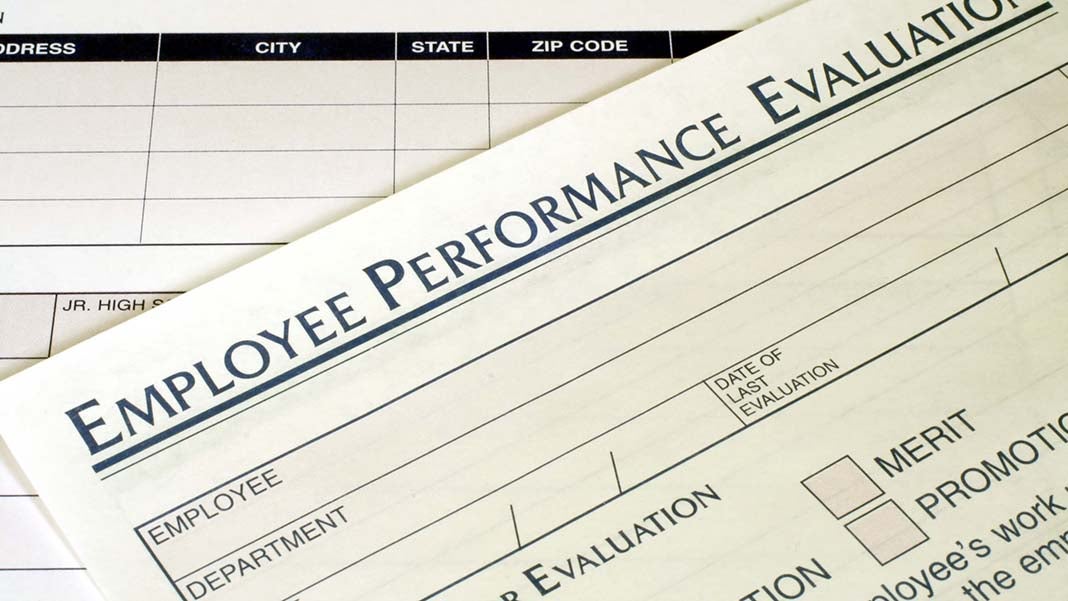
Here comes a controversial subject. How often do you take the time to rate your direct reports? Is it worth the time and effort when measured from the perspective of the company and of the employee? In terms of time, this can be expensive and disruptive to you and your direct reports. In terms of value…well let’s examine that.
What metrics will you use to fairly evaluate each direct report?
First, like any important process, the metrics used to measure effectiveness and progress are so important to a successful outcome, that a good manager will spend time reviewing those metrics used by others and create an appropriate set of measurements for your company that reflect the most important attributes of the employee as they relate to the needs of the company. There are many formats for use in rating and reviewing employees, and selection of the proper form and format is the first step in a successful process. But note that this alone will be time-consuming for you.
How often to review, if ever?
I’ve been asked often if such reviews should be performed quarterly, semi-annually, or annually. Note that few ever ask if they should be performed at all.
One argument: legal protection for the company
When an employee is subsequently dismissed for any reason, the documentation of past performance and reviews, including any past notification of weaknesses or warnings, becomes an important shield to protect the company against a subsequent lawsuit or challenge from a state employee review process. Many companies do not take the time to perform such reviews and end up paying the price in adverse rulings by courts or commissioners based upon verbal statements alone. So, protection of the corporation is reason number one for investing in such a process.
Do employees care enough to go through the process?
Second, employees most often genuinely want to know how they are performing against the company’s standard and management expectations. It is human nature to desire praise; and the review process is one tool to provide such positive feedback to employees. This still does not address the question of how often to make this a formal process if ever.
Alignment of employee goals with those of the company
Third, every employee should be directed to work toward the goals of his or her department, which in turn are aligned with those of the company itself. By providing a format for review that includes a number of key performance indicators that measure just such alignment, both the employee and the manager keep focused upon the real goals for productivity.
Passing on corporate values
Fourth, corporate values are passed on to employees in a number of self-reinforcing ways, including discussion of values during the review process. Many a business would not have strayed into a dangerous regulatory and legal abyss if employees were shown, told, and measured by their adherence to the values stated by their corporation as important to all stakeholders.
So, how often should you and your reports do this?
To answer the question of how often to perform such employee reviews, from experience I believe that quarterly formal written reviews are too much of a task for all. Semi-annual reviews are excellent, especially for companies that offer stock options as well as merit increases for outstanding performance. With such reviews, option grants could be tied to one review and merit increases to the other. Two carrots in a year are better than one for obtaining desired outcomes. The very minimum level of acceptability should be one annual review for an employee. There are those who are passionate about tossing out the formal review process completely and just providing feedback when warranted, positive or negative.
How about reviewing the CEO?
I participate in a number of CEO reviews as board chair of those companies. In such reviews of the top executive, I reach out to his or her direct reports for input, and then I turn to other members of the board of directors. With such a comprehensive view of CEO performance, it is much easier to sit with the CEO and provide valuable input that is useful for CEO development. And even founder-CEO’s are thankful for the input received, usually taking criticism as a challenge to grow in the position.
Our conclusion
I’d have a difficult time thinking that any company, large or small, could perform at its peak without great employee metrics including individual key performance indicators, capped by consistent reviews and feedback. You’ve just heard the arguments for and against specific periodic reviews. That decision I’ll leave up to you now that you’ve heard from both sides of this controversial argument.












